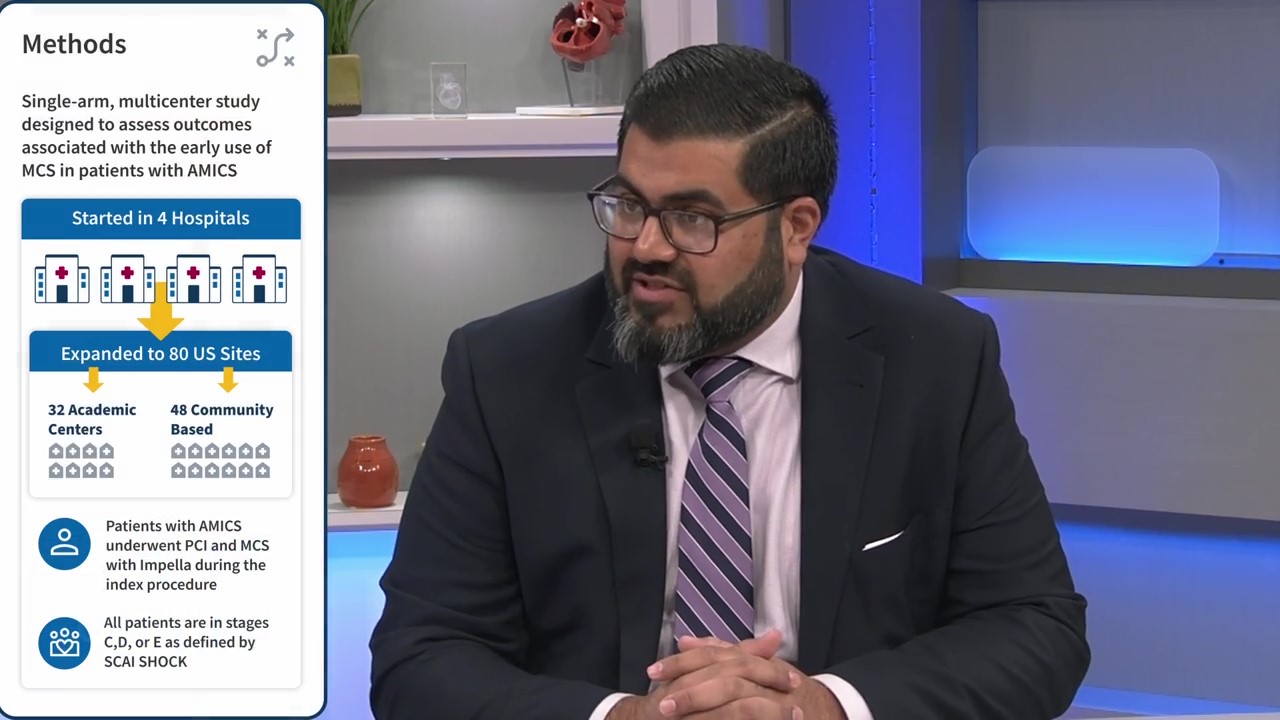ECMO, Hemolysis, Clinical Research & Data, AMI Cardiogenic Shock
ECpella versus ECMO in Cardiogenic Shock: Two Independent Meta-analyses
Mario Iannaccone, MD, and Vasileios Panoulas, MD, discuss the results from their 2 independent meta-analyses demonstrating that the combined use of extracorporeal membrane oxygenation (ECMO) and Impella - a combination known as ECpella™ or ECmella - improves survival in patients in cardiogenic shock compared to ECMO alone. They also discuss how the adoption of best practices can reduce complication rates in these patients.
Dr. Iannaccone from Turin, Italy, is lead author of the meta-analysis titled, “Comparison of ECMO vs ECpella in patients with non-post-pericardiotomy cardiogenic shock: an updated meta-analysis” published in Cardiovascular Revascularization Medicine in July 2022. Dr. Panoulas, from London, UK, is co-author of “Impella as unloading strategy during VA-ECMO: systematic review and meta-analysis” published in Reviews in Cardiovascular Medicine in December 2021.
These two meta-analyses used different methodologies and the groups worked blinded from each other’s work, yet both reached the same conclusion on reduction in mortality with ECpella in patients with cardiogenic shock, which Dr. Iannaccone emphasizes, “really increased the strength of the finding” and Dr. Panoulas states was a conclusion “even more powerful than the meta-analysis itself.”
In both analyses there was a trend toward more bleeding in the combined ECMO and Impella approach, which, as Dr. Panoulas explains, “is probably to be expected given that we’re dealing with 2 large bore devices.” He also emphasizes that improvement in vascular access techniques, such as ultrasound-guided puncture, has reduced bleeding complications over time. “I think we have also become a bit wiser in the anticoagulation strategies that we use,” he notes, “and as a result we have improved outcomes.”
Hemolysis and renal replacement therapy (RRT) also occurred at higher rates in the ECpella group. Both physicians explain that they have not found hemolysis to be a significant issue in clinical practice and that it can be reduced through best practices that address positioning and suction events. Dr. Iannaccone explains that today’s Impella 5.0® and Impella 5.5® devices can provide significant perfusion at lower speeds, which reduces hemolysis and improves the clinical experience, especially with ECpella.
Regarding renal replacement therapy, both physicians point to unavoidable selection bias in these types of nonrandomized studies and Dr. Panoulas states, “people that needed the combination of the devices, more likely than not, are the sickest spectrum of the population, and that is probably reflecting the need of renal replacement therapy.”
The interview concludes emphasizing the potential for different results if these analyses were conducted with data from today reflecting the best practices that have been adopted to improve outcomes and complications.


